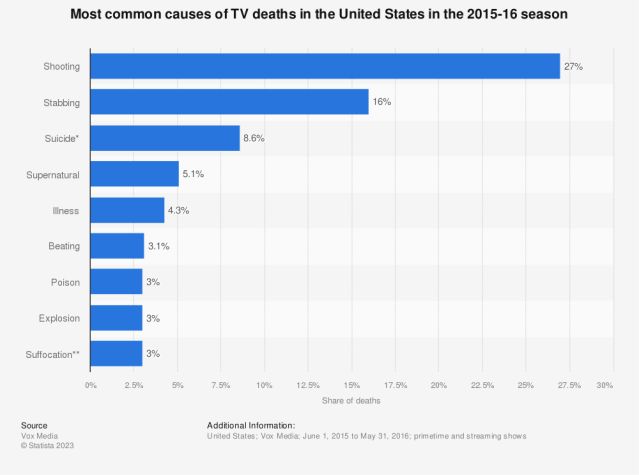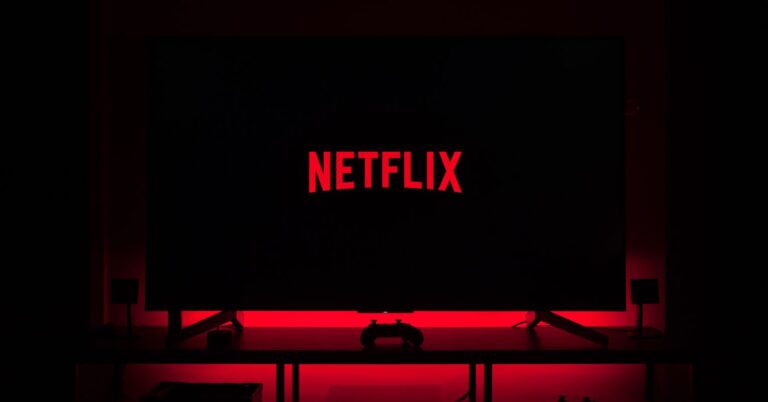
A scene from “Law & Order”.
NBC
Law & Order is a simple show. Someone gets murdered, the detectives arrest the culprit, and then they’re put on trial. The show’s predictability is honestly part of its appeal: you always know, more or less, what you’re going to get.
But it’s not realistic. The detectives on Law & Order always make an arrest. In real life, though? The so-called “clearance rate” for homicides is close to 50 percent, meaning about half the time the police don’t close the case. On Law & Order, the prosecutors are most likely to get a guilty verdict, even though, in reality, 95 percent of felony convictions result from plea bargains, not trials.
The Inaccuracy of Depictions of Death on TV
How accurately should TV reflect real life? This is the question raised in a recent report in the context of how death is depicted on TV. The report, published jointly by End Well, “a nonprofit dedicated to the belief that all people should experience the end of life in a way that matches their values and goals,” and the USC Annenberg Norman Lear Center’s Media Impact Project, highlights multiple ways that death on TV is unrepresentative and inaccurate.
For example, they cite one analysis of the 2015-16 TV season that found that 80 percent of deaths on TV were violent in nature. Their keyword analysis of TV and film scripts from 2010-2020 found that “killing” and “murder” were respectively 82 and 30 times more frequent than other end-of-life related words like “terminal illness” or “hospice.”

Deaths on television.
Source: Statista / Used with permission
I’ll admit that my initial reaction to this report was mostly indifference. Yes, violent deaths are overrepresented on TV, but so are zombies and aliens. Isn’t the whole point of entertainment to be an escape from the mundane realities of everyday life? And it’s not like people are completely naive. They aren’t watching shows like Law & Order or Grey’s Anatomy and treating them like documentaries.
Unrealistic TV Could Subtly Shape Our Real-Life Expectations
But that doesn’t mean these shows might not subtly influence people’s expectations in real life. For example, Rebecca Pardo, Tracy Wheeler, and Shoshana Ungerleider, the authors of the End Well / USC report, write:
Deaths are often portrayed as more calm and peaceful than they happen in reality… such depictions may leave viewers inadequately prepared for the realities of what death can be like, and this may increase their distress or belief that their loved one had a ‘bad’ death.
They also cite research from 2015, which found that survival rates from CPR on TV are about twice what they are in reality.
Observations like these can be pernicious because of a well-studied reasoning heuristic we rely on called availability. It refers to the fact that we tend to judge how common something is by how easily we can think of examples, which can lead to some systematic biases. For example, people consistently overestimate annual rates of death associated with natural disasters and underestimate rates of death related to the most common causes like heart disease, cancer, and stroke. Why? Compared to their frequency, disaster deaths are disproportionately reported on, and they loom large in our minds.
For most people, death is an uncommon experience, so most of the examples we can think of about it come from the media. And if those examples are inaccurate or unrepresentative, we might end up with the wrong expectations when we face death in our own lives.
Just like someone who ends up in legal trouble may be dismayed to discover that they won’t get a speedy trial as they’ve seen on TV and instead gets pressured to take a plea bargain that forever makes them a convicted felon, someone whose parent suddenly develops a terminal illness may be heartbroken to find that the course of their decline is nothing like what they’ve seen depicted on TV and in movies.
So, *should* TV more accurately reflect real life? I’m not sure. But I’m inclined to agree with the authors of the End Well / USC report that unrealistic TV risks shaping viewers’ real-life expectations in negative ways.



















+ There are no comments
Add yours